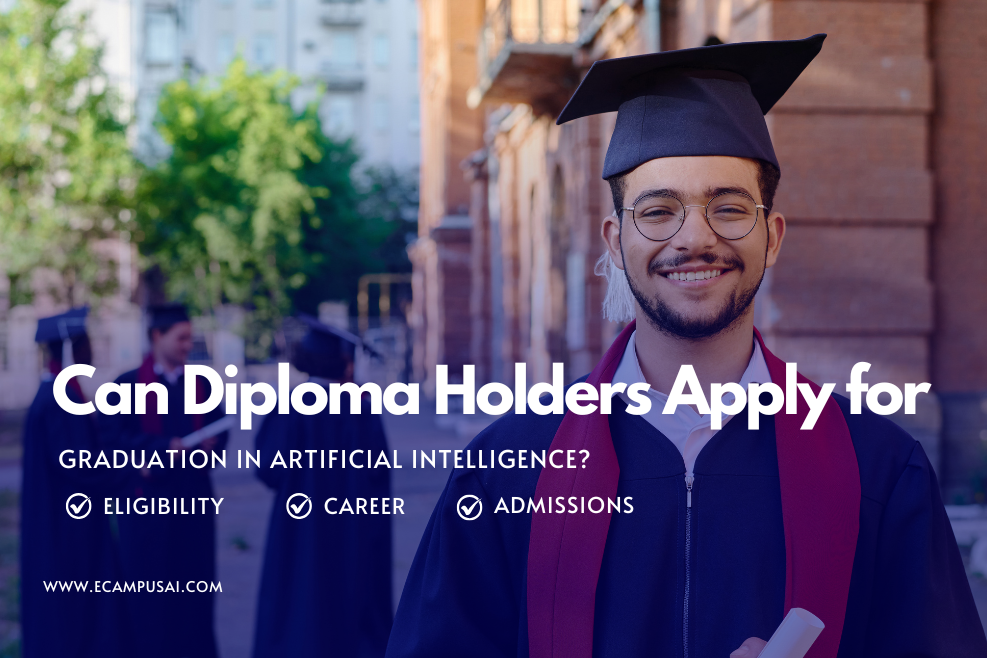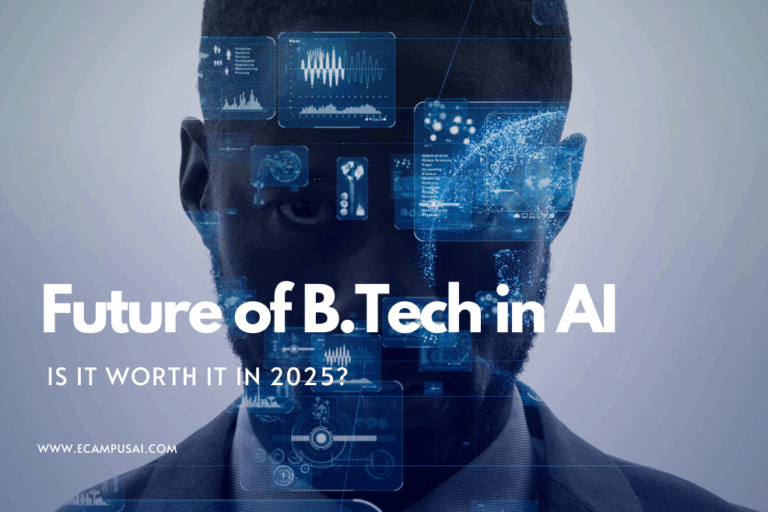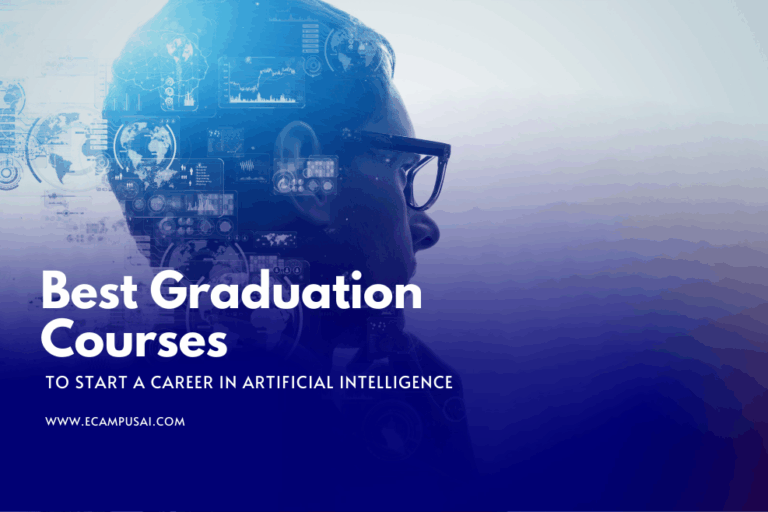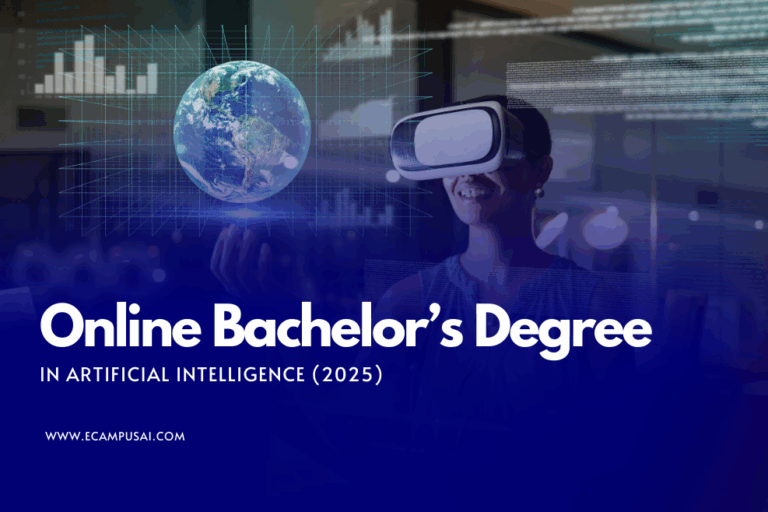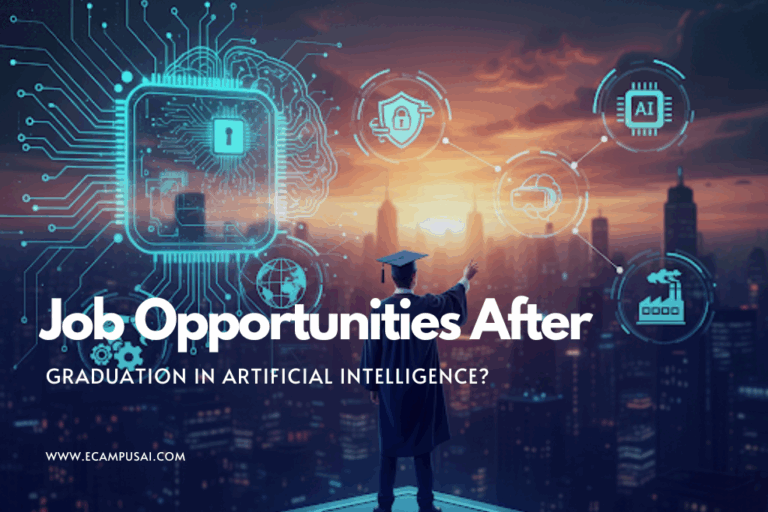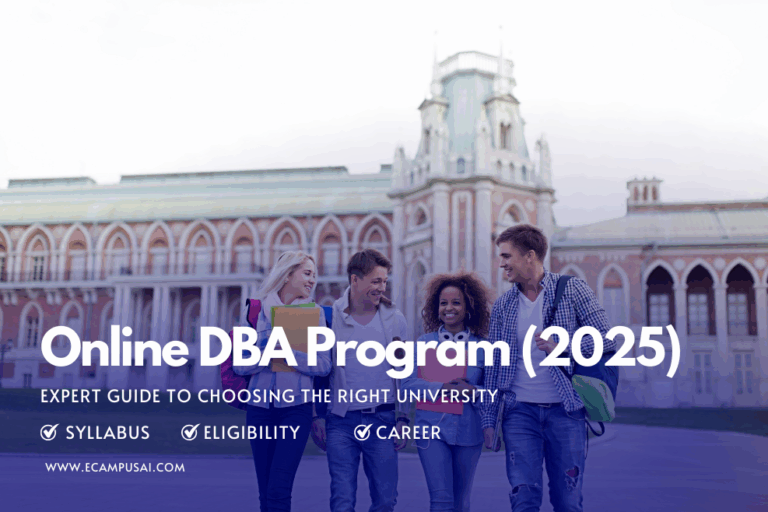Can Diploma Holders Apply for Graduation in Artificial Intelligence?
Lots of people finish their diplomas and hit this weird wall afterward. They’re not sure about moving forward with a tech degree. Or figuring out what comes next. If that hits close to home, you’re not alone. This guide walks through all that stuff, like eligibility rules and job possibilities later on. Basically helps map out your moves so you can decide where to go from here without stressing too much.
What Does a Graduation Program in Artificial Intelligence Involve?
A Graduation in Artificial Intelligence isn’t just about coding or algorithms—it’s about understanding smart systems and learning how to solve real-world problems. Students explore:
- Programming for data analysis and problem-solving.
- Developing systems that can “learn” from data.
- Understanding patterns, predictions, and automation.
- Hands-on projects that bridge classroom ideas and real applications.
These programs aim to give students both knowledge and experience, so by the time you graduate, you’re ready to step into tech roles with confidence.
Who Can Apply? Eligibility for Diploma Holders
But wait—does having a diploma automatically limit your options? Not necessarily. Here’s how different diploma backgrounds fit in:
1. Diploma in Engineering or Computer Science
If your diploma is in engineering, computer science, or IT, you often qualify for lateral entry, letting you start in the second year of Graduation in Artificial Intelligence.
Key points:
- A minimum of 50% marks may be required
- Entrance exams or interviews could apply
- Specializations in computer-related fields are preferred
2. Diploma in Mathematics or Science
Even if your diploma is in math, statistics, or science, you’re not out of options. Many B.Sc. programs welcome students with strong quantitative skills.
However, you may need to:
- Complete some preparatory courses in programming.
- Refresh knowledge in areas like probability or linear algebra.
3. Diploma in Other Fields
If your diploma is in an unrelated area, don’t worry. Many universities provide foundation courses to help students catch up. This extra step can make the difference between struggling and excelling in the degree.
“Curious how students from non-technical backgrounds manage to succeed? The trick is in bridging the gaps before you dive in.”
How Diploma Holders Can Gain Admission
Wondering how to get into a Graduation in Artificial Intelligence program? There are several pathways:
Direct Lateral Entry
- Join the program in the second year if your diploma matches the field
- Saves time compared to starting from scratch
- May require entrance exams or merit-based selection
Start from the First Year
- Suitable if your diploma doesn’t fully align with the curriculum
- Helps build a solid foundation before tackling advanced topics
Online or Distance Programs
- Flexible for working students or those from different backgrounds
- Often include preparatory modules to cover basics
“Not sure which route is right for you? Later in this blog, we’ll break down what each option means for your career prospects.”
Skills to Focus On Before Graduation
Even with a diploma, certain skills make the transition much easier for Graduation in Artificial Intelligence:
- Programming Skills – Python is essential; R or Java can help too.
- Mathematics – Probability, statistics, and algebra form the backbone of many projects.
- Data Handling – Learn how to work with databases and clean datasets.
- Problem-Solving – Critical thinking is key in building smart systems.
Small projects, coding exercises, and online courses can dramatically improve confidence and performance.
“That diploma might not be enough on its own these days. Developing certain skills could make a real difference. Helps you stand out from everyone else trying to get ahead. Picking those abilities up early speeds things up career-wise too.”
Top Colleges Accepting Diploma Holders
Several universities in India are known for accommodating diploma holders:
- Chandigarh University (CU Online) – Offers lateral entry for engineering diplomas
- Amity University Online – Flexible programs for students from various backgrounds
- Jain University – Provides bridging courses to fill knowledge gaps
- Manipal University Online – Has eligibility options for diploma holders
- DY Patil University – Supports lateral entry in tech-focused degrees
Always check the university’s official website for the latest eligibility and admission requirements.
Challenges You Might Face
It’s not all smooth sailing. Be prepared for:
- Adjusting to a more intensive curriculum – Degree programs are often more theory-heavy.
- Programming gaps – Extra effort may be needed if your diploma didn’t cover coding thoroughly.
- Competitive entrance exams – Some institutes require exams for lateral entry.
- Time management – Projects, labs, and assignments demand consistent effort.
“Worried about falling behind? The good news is that with focus and planning, diploma holders can overcome these challenges easily.”
Career Opportunities After Graduation
People often wonder about options after graduation. The possibilities actually spread out wider than you might expect right now.
- Software developers and engineers focus on building systems that tackle real-world problems.
- Data analysts work with numbers and patterns to guide decisions and future predictions.
- Machine learning engineers create systems that adapt on their own over time.
- Business analysts use data insights to shape company strategies and direction.
- Researchers push boundaries by developing new tech solutions from scratch.
Salaries tend to stay competitive in these fields, you know. Growth potential really accelerates when you stack up experience and specialized skills over time.
“If you’re still figuring out which path clicks with your interests, just keep trying different projects and internships, honestly. Online courses help narrow things down too if you’re exploring niches that feel right.”
Conclusion
Diploma holders definitely have ways to graduate in this field. Different paths work for different people. Lateral entry works. Or starting fresh with year one online programs helps too. The thing is, you have to bring preparation and determination, maybe some specific skills on top of that.
Putting in focused effort helps a lot; actually practicing stuff and staying curious. Diploma folks don’t just catch up; they end up doing real well most times, opening up good job options and letting them keep learning their whole lives, basically.
They say it isn’t about where you begin but how far you push yourself anyway. That line sticks with people, you know—straight-up truth right there.
Also Read: B.Sc. in Artificial Intelligence – Syllabus, Duration, and Job Opportunities
Frequently Asked Questions
Q1. Can diploma holders apply for a graduation program in AI?
Yes, diploma holders in relevant fields can apply through lateral entry or standard admission, depending on university eligibility criteria.
Q2. Can a diploma holder join the second year directly?
Yes, lateral entry allows eligible diploma holders to start from the second year of B.Tech or B.Sc programs in AI.
Q3. Which diplomas are eligible for graduation in AI?
Diplomas in engineering, computer science, IT, mathematics, or statistics are usually preferred; other fields may require foundation courses.
Q4. What skills should diploma holders develop before joining?
Key skills include programming (Python), data analysis, mathematics (algebra, probability), and problem-solving for practical projects.
Q5. Can diploma holders with non-technical backgrounds succeed in AI graduation programs?
Yes, with foundation courses, self-learning, and skill development, diploma holders from other streams can catch up and thrive in graduation programs.

